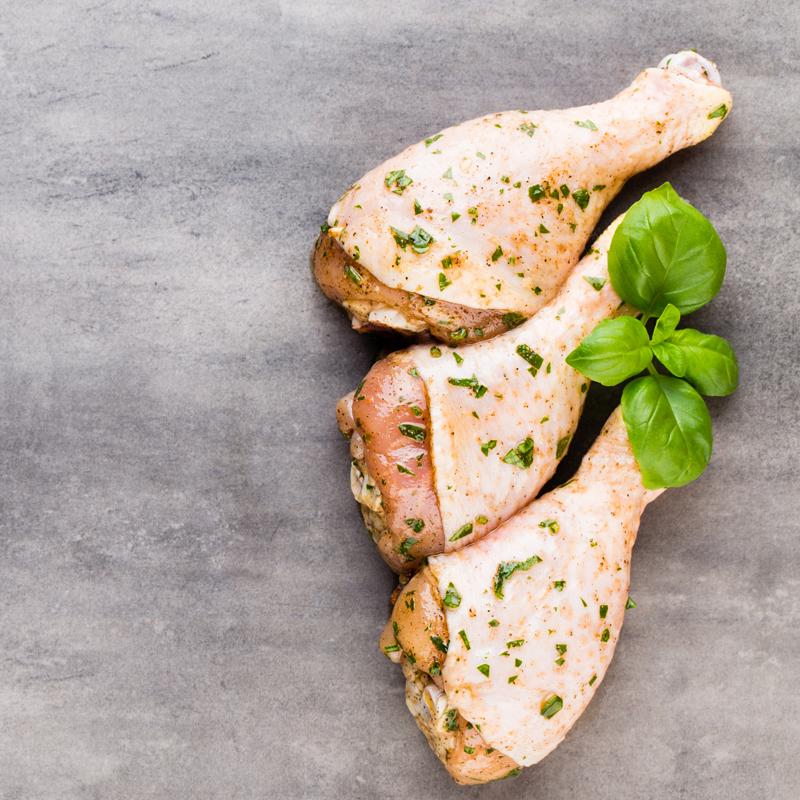
100 gr |
-- |
|
|---|---|---|
| Carbohydrate (gr) | 15.04 |
4928.47 |
| Protein (gr) | 3.59 |
1176.23 |
| Fat (gr) | 12.46 |
4083.43 |
| Fiber (gr) | 1.36 |
445.97 |
| Cholesterol (mg) | 14.64 |
4795.8 |
| Sodium (mg) | 325.27 |
106557.75 |
| Potassium (mg) | 392.16 |
128471.4 |
| Calcium (mg) | 78.15 |
25603.27 |
| Vitamin A (mg) | 46.04 |
15084.01 |
| Vitamin C (mg) | 6.16 |
2019.31 |
| Iron | 0.62 |
203.1 |
Chicken meat is one of the most widely consumed protein sources globally, valued for its rich nutritional content and versatility in cooking. It is packed with essential nutrients, including protein, potassium, phosphorus, iron, and zinc. However, it also contains a significant amount of cholesterol, which should be considered when incorporating it into a balanced diet. Additionally, consuming chicken with its skin increases fat and calorie intake, making it advisable to remove the skin for a healthier option.
The calories in chicken thighs with skin are 214 calories per 100 grams.
Chicken is a lean source of high-quality protein and essential minerals. The nutritional content of 100 grams of skinless, cooked chicken breast includes:
These nutrients make chicken an excellent choice for muscle growth, immune support, and overall health.
Rich Source of Protein
Chicken is a high-protein food that helps build and repair muscles, making it ideal for athletes and individuals looking to maintain muscle mass.
Supports Heart Health
Chicken contains essential minerals like potassium and phosphorus, which contribute to maintaining healthy blood pressure and heart function. However, due to its cholesterol content, moderation is key.
Boosts Immunity
The iron and zinc in chicken support red blood cell production and immune system function, helping the body fight infections.
Strengthens Bones and Teeth
Phosphorus plays a crucial role in maintaining bone strength and overall skeletal health.
Low in Fat (Without Skin)
Skinless chicken is a lean protein option with minimal fat, making it suitable for weight management and a heart-healthy diet.
While chicken skin adds flavor and crispiness, it also increases the fat and calorie content significantly. A piece of skinless chicken breast contains about 3.6 g of fat, whereas the same portion with skin can contain up to 8 g of fat.
For a healthier choice, it is recommended to remove the skin before cooking or consuming chicken.
To retain the nutritional benefits while minimizing unhealthy fats, consider these cooking methods:
Chicken meat is an excellent source of protein, minerals, and essential nutrients that support overall health. However, to maximize its benefits and minimize health risks, it is best to consume it without the skin and prepare it using healthy cooking methods. By incorporating lean chicken into a balanced diet, you can enjoy its nutritional advantages while maintaining heart health and managing cholesterol levels.